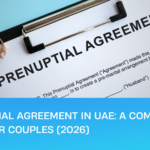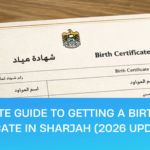Benefits Vs. Risks of Giving a Power of Attorney

✅ Quick Summary – Power of Attorney in the UAE
- A Power of Attorney (POA) lets you authorize another person or company to handle legal, financial, or property matters on your behalf.
- It can be general (broad powers) or special/limited (specific tasks such as selling a property or managing a bank account).
- POAs are useful for estate planning, business management, and when you’re abroad or incapacitated.
- Risks include misuse or abuse, so always appoint someone trustworthy and define clear limits.
- To stay valid, a POA must comply with UAE laws, be notarized, and respect authority-specific rules (e.g., Dubai Land Department’s 2-year limit for property sales).
A Power of Attorney (POA) is a legal document in which one person gives another person — the agent — the right to perform certain tasks or make decisions on his or her behalf.
Authority Granted Under a Power of Attorney
A Power of Attorney (POA) can be as broad and extensive as you need it to be, but can also be as specific and limited as required.
As the Principal (person giving the POA), you may:
- Grant general powers or restrict the powers to limited actions.
- Authorize your agent to operate:
- Business affairs
- Real estate assets
- Investments in company shares
- Banking matters
- Property transactions (sale, purchase, handover, gift, rent, mortgage)
- Filing a lawsuit on your behalf
When a General Power of Attorney (GPOA) is given, the appointed person (“Attorney-in-fact” or “Agent”) can make decisions to the same extent that you could yourself.
For some transactions — e.g., property sales or personal banking — UAE authorities often require a specific and limited POA.
The validity of your POA can also be set to a certain period, provided that a governing rule set by the concerned authority is not stipulated.
Benefits of a Power of Attorney
A Power of Attorney is a convenient way to have your affairs tended to without your physical presence.
A Power of Attorney offers several advantages:
- Lets you manage important affairs without being physically present.
- Allows you to appoint a professional or a company experienced in a relevant field.
- Helps you delegate authority to:
- Sell or purchase property on your behalf
- Handle legal or financial formalities while abroad
- Ensure continuity of your business or assets if you become incapacitated
A Power of Attorney is also a valuable estate-planning tool, helping you decide who can make decisions for you in case of incapacity.
It can become an important legal instrument to keep things going if you become incapacitated after issuance of your POA. It also ensures that you decide who can make decisions in the event of your incapacitation.
When a Power of Attorney Is Most Useful
- You are not able to physically and personally attend formalities to complete a transaction;
- You are looking to save on travelling expenses and the time required to seal a deal.
- You want to authorize a family member, or a trusted person, to make decisions on your behalf in your absence or if you get incapacitated;
- You prefer to appoint an expert/lawyer to handle certain tasks.
Risks of Granting a Power of Attorney
The highest risk of appointing a Power of Attorney is the possibility of misuse or abuse by your representative. Therefore, it is very important to appoint a person or a company that you can truly rely on.
If your attorney oversteps his or her bounds or purposely acts in bad faith, they may cause a lot of irreversible loss and damage.
Typically, people give the General Power of Attorney to anyone without fully comprehending the risks it involves. You might comfortably authorize your representative to sell real estate properties, manage a business, operate bank accounts, modify a trust, or take other actions that can have long-lasting bad consequences for you.
It is also important to understand that your appointed person cannot be taken accountable for his or her actions if he or she acted within the powers granted.
How to Minimize Risks
- Appoint only someone you fully trust or hire a licensed professional.
- Clearly define the scope and duration of the POA.
- Review the document carefully before notarization to ensure you understand all powers granted.
Having your POA drafted by a lawyer or by someone who is aware of the UAE law will save you the headache of future problems, and it’s your responsibility in reviewing, understanding and agreeing to the powers/authorizations you are granting to your representative prior to getting it notarized.
📩 contact@poa.ae | ☎️ 800-POAAE (76223)
Disclaimer: The content on this page is for general information purposes only and does not constitute legal advice nor should it be used as a basis for any specific action or decision. Nothing on this page is to be considered as creating a lawyer-client relationship or as rendering of legal advice or legal services for any specific matter. Users of this website are advised to seek specific legal advice by contacting their own legal counsel regarding any specific legal issues.





